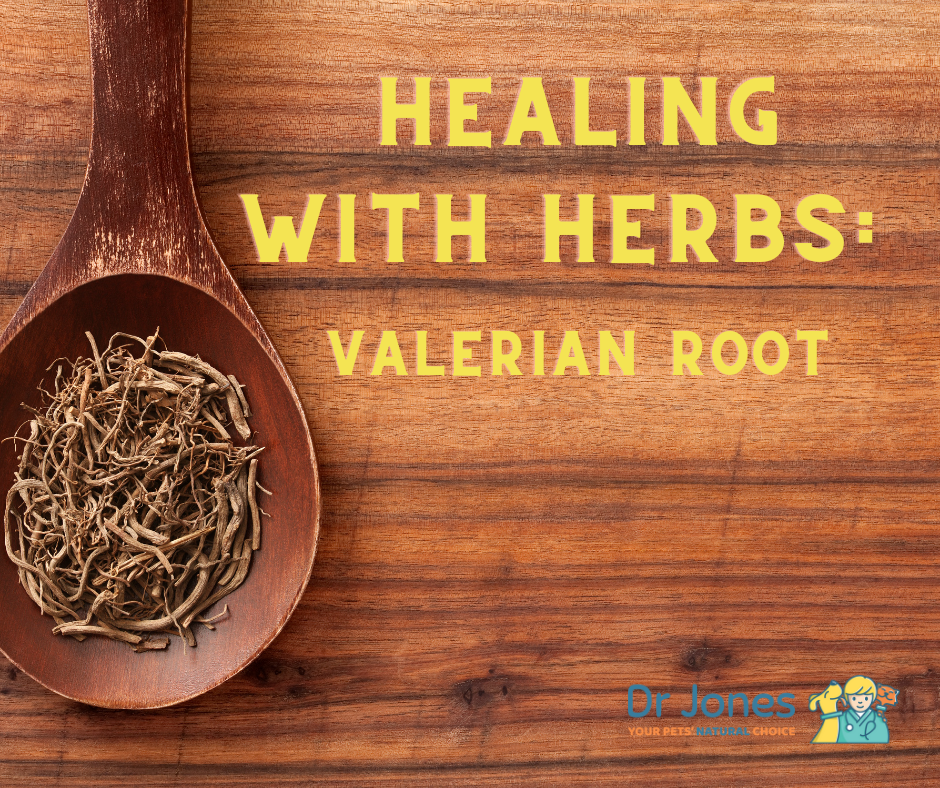Healing With Herbs: Valerian Root

Welcome to Part 2 of my 4 – part series. Today I will be covering Valerian Root.
Valerian root, grown in parts of Asia and Europe, is a common sleep aid. However, this root has more uses that can benefit your pets, which I will be covering today.
History of Valerian Root
Dating back to to the 2nd century, valerian root has uses in a variety of ailments. The ancient Greek physician Hippocrates detailed its benefits, and during 16th century it was used to treat issues such as:
- Nervousness
- Trembling
- Headaches, and
- Heart Palpitations
During World War II, it was used to relive the stress of air raids. The name Valerian Root came from the Latin word valere, which means ‘to be strong’ or ‘to be healthy’.
Uses of Valerian Root
Sleep Aid:
Valerian is most commonly used as a natural option for a sleep aid and can even improve sleep without the grogginess you may get from standard sleep aids.
A compound within valerian, when interacting with gamma-aminobutyric acid (GABA), regulates nerves in the brain and nervous system.
A study in humans showed that Valerian Root helped them to fall asleep faster, and stay soundly asleep – many sleep aids can eventually lead to dependence, which has not been shown to be the case for Valerian Root.
Anti-Anxiety:
Valerian Root has shown benefits in reducing anxiety by stabilizing mood and promoting calmness.
A study performed on mice showed that Valerian Root maintained levels of serotonin (which is a mood regulator), which in turn, improved their response to stress.
Valerian Root could be a great option if your pet is frightened of loud noises, fireworks, or storms – give 30 minutes to 2 hours beforehand to calm them.
Epilepsy:
Valerian Root is shown to help epileptic animals, as it works similarly to the common prescription drug Phenobarbital.
Additional Uses:
- Muscle and Joint Pain
- Depression
- Stomach Upset (Diarrhea)
- Mild Tremors
- Restless Leg
Dosage and Side Effects
The dose is 50 mg per pound of the dried herb or one drop per pound of body weight twice daily of the extract. An alternative to capsules is to make a tea using dried valerian root steeped in hot water for 10–15 minutes (remember to allow the tea to COOL completely prior to giving to your pet).
Research suggests that valerian is most effective once it’s been taken it regularly for at least two weeks and then continue taking it for another two to four weeks.
Valerian Root has been shown to have few adverse effects, in the short term – there have not been studies made for long term use. If your pet is currently taking anti – anxiety medication or sedatives, keep in mind the use of Valerian Root may increase sedation or increase depressive effects.
It should not be taken during pregnancy, as there are not enough studies to back the safety.
Valerian Root is a wonderful, safe and effective option for reducing anxiety in your pet, as well as helping them sleep.
You can find all forms of Valerian (dried herb, liquid extract and tea) on Amazon or iHerb.


My English mastiff has had some scares when it comes to trimming nails …. How can I help him ?
Here are some videos that can help:
https://youtu.be/E4TV3OeDFqY
https://youtu.be/fmEx7n_ckBw